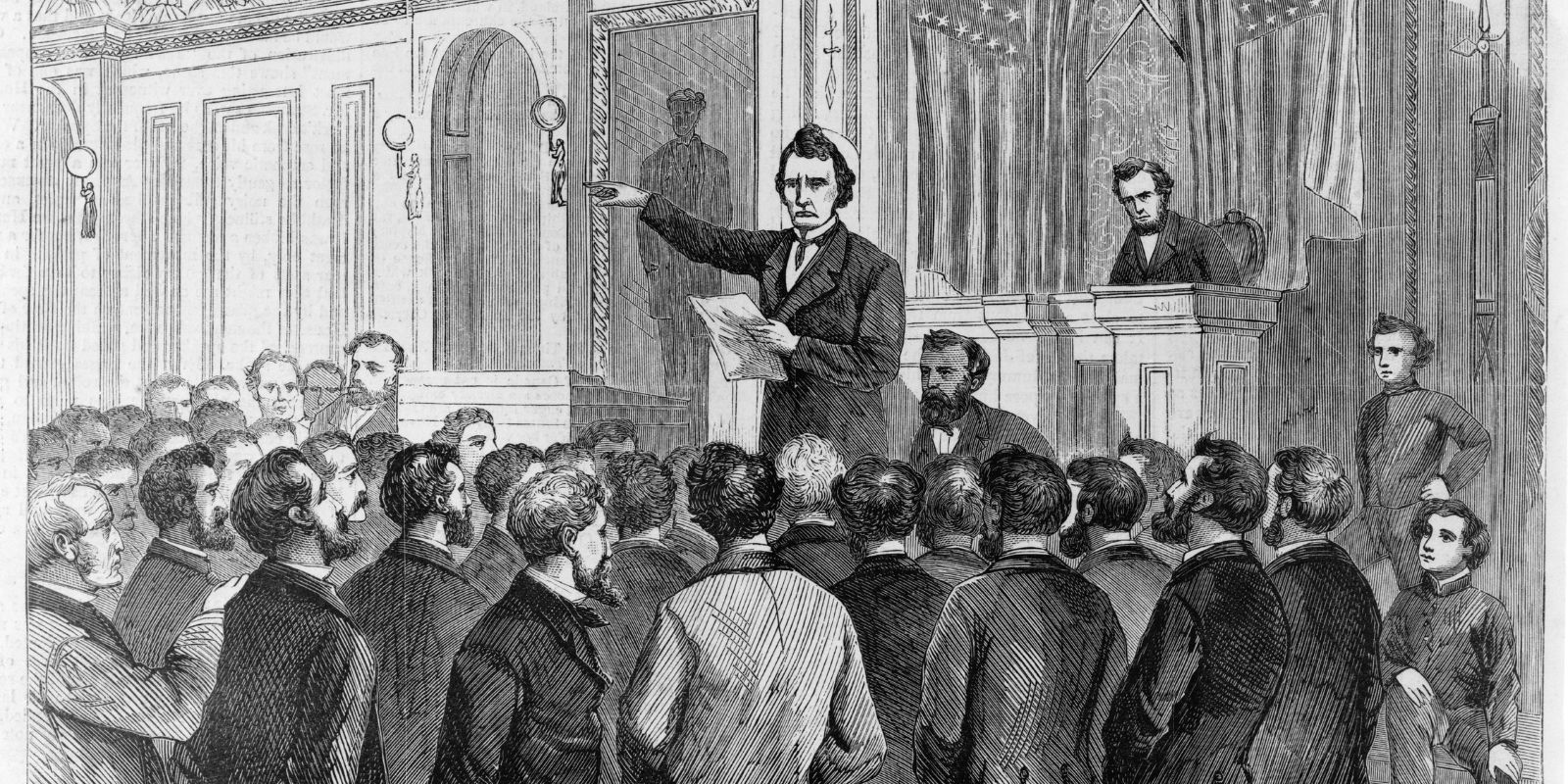What Happened On February 24th?
The day that the first U.S. president was tried for impeachment initiated a clash between the executive and legislative branches of government. The events which led to eventual Johnson’s eventual impeachment were rooted in the aftermath of the Civil War and during the tumultuous period of Reconstruction.
On February 24, 1868, the U.S. House of Representatives voted to impeach President Johnson, making him the first president in American history to face such action. The impeachment was primarily driven by the intense political divisions of the time, as well as Johnson’s contentious approach to Reconstruction following the Civil War.
Johnson, a Democrat from Tennessee, had ascended to the presidency following the assassination of President Abraham Lincoln in 1865. His Reconstruction policies, which aimed to quickly restore the Southern states to the Union with minimal federal intervention, often clashed with the Republican-controlled Congress’s vision for Reconstruction, which included greater protections for newly freed African Americans.
One of the central points of contention that led to Johnson’s impeachment was his violation of the Tenure of Office Act. Passed by Congress in 1867, this law required Senate approval for the removal of certain officeholders, including members of the president’s cabinet. Johnson defied this act when he attempted to remove Secretary of War Edwin Stanton from office without Senate consent. This action was seen as a direct challenge to Congress’s authority and an abuse of presidential power.
The impeachment proceedings against Johnson were highly charged and divisive, reflecting the deep-seated political tensions of the era. The House of Representatives ultimately approved articles of impeachment against Johnson, accusing him of “high crimes and misdemeanors.” The trial then moved to the Senate, where Chief Justice Salmon P. Chase presided over the proceedings.
In May 1868, after a lengthy trial, the Senate fell short of the necessary two-thirds majority to convict Johnson and remove him from office. The final vote was 35 to 19 in favor of conviction, just one vote shy of the required threshold. Johnson remained in office and served out the remainder of his term, which ended in 1869.
While Johnson survived impeachment and remained president, this episode had lasting implications for the balance of power between the executive and legislative branches of government. It set the standards for checks and balances within the U.S. political system, reminding the people of the limitations of presidential authority.
Questions, Comments, Concerns?
During this time, the Civil War may have been over, but there was still a lot of tension going on.
Do you think he should have remained as President for the rest of his term, or should he have been removed?
Let’s discuss below!





